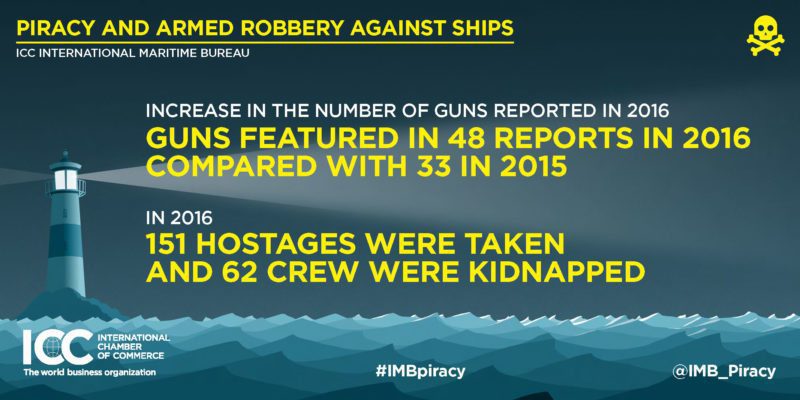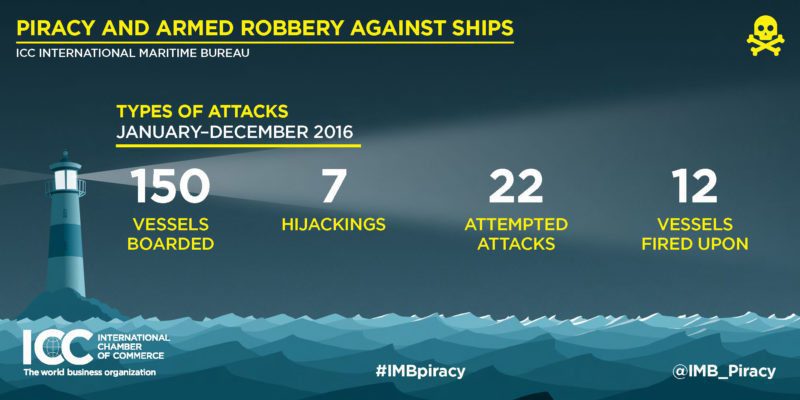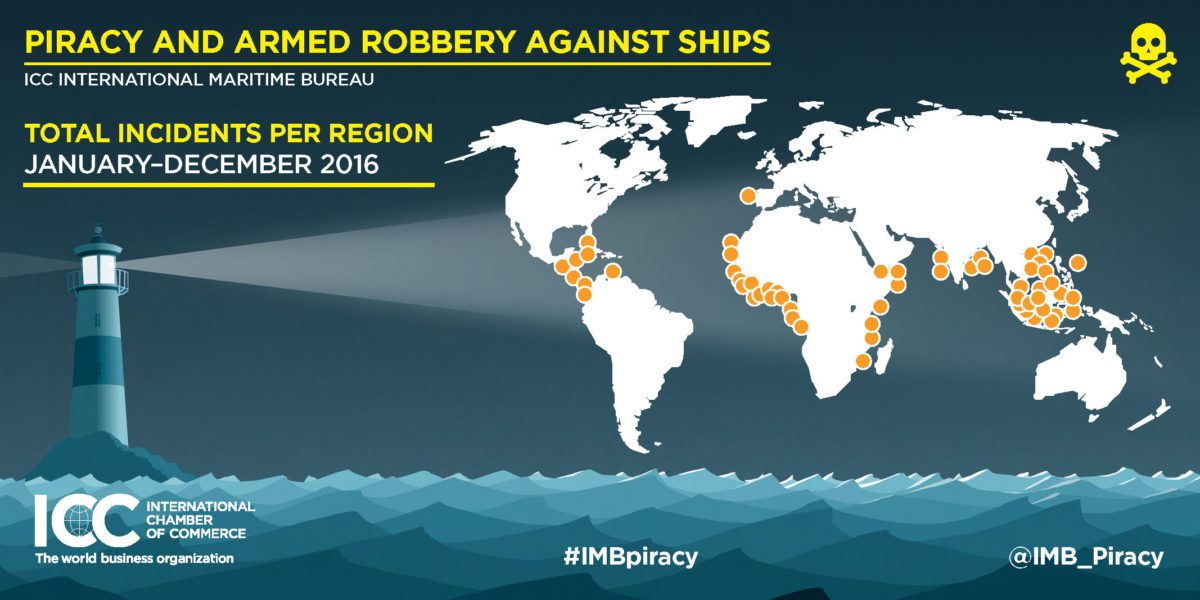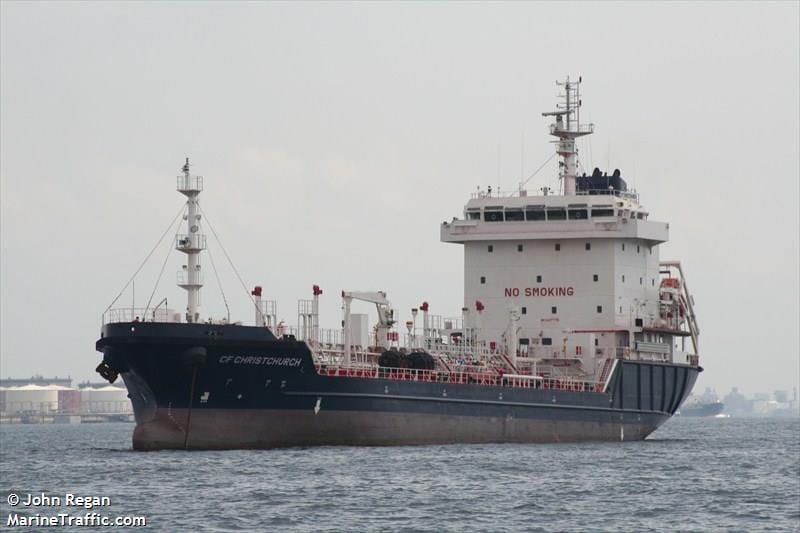Updated: November 30, 2023 (Originally published January 10, 2017)

More crew were kidnapped at sea in 2016 than in any of the previous 10 years, despite global piracy reaching its lowest levels since 1998, the ICC International Maritime Bureau’s (IMB) said in its annual piracy report released Tuesday.
The IMB Piracy Reporting Centre is the world’s only independent 24-hour manned center for receive reports of pirate attacks from around the world.
In 2016 the IMB recorded 191 incidents of piracy and armed robbery on the high seas across the globe, down from the 246 reported incidents in 2015. Despite the drop-off in some historically piracy-prone areas, other areas, such as the Sulu Sea, are of particular concern.
“The continued fall in piracy is good news, but certain shipping routes remain dangerous, and the escalation of crew kidnapping is a worrying trend in some emerging areas,” said Pottengal Mukundan, Director of IMB whose Piracy Reporting Centre (PRC), who has monitored world piracy since 1991.
“The kidnappings in the Sulu Sea between East Malaysia and the Philippines are a particular concern,” he added.

Worldwide in 2016, the IMB recorded 150 vessels boarded, 12 vessels fired upon, seven hijacked, and 22 attacks were thwarted. The number of hostages fell to 151.
Maritime kidnappings, however, showed a threefold increase on 2015. Pirates kidnapped 62 people for ransom in 15 separate incidents in 2016. Just over half were captured off West Africa, while 28 were kidnapped from tugs, barges, fishing boats, and more recently merchant ships, around Malaysia and Indonesia, the IMB said.

The IMB gave the following breakdown by region:
Sulu Sea kidnappings
The kidnapping of crew from ocean going merchant vessels in the Sulu Sea and their transfer to the Southern Philippines represents a notable escalation in attacks. In the last quarter, 12 crew were kidnapped from two cargo vessels underway and an anchored fishing vessel, and in November a bulk carrier was fired upon but pirates were not able to board the vessel. Earlier in 2016, crewmembers were kidnapped in three attacks on vulnerable slow-moving tugs and barges.
IMB advises charterers and owners to consider avoiding the Sulu Sea by routing vessels West of Kalimantan.
Nigeria hotspot
The Gulf of Guinea remained a kidnap hotspot in 2016, with 34 crew taken in nine separate incidents. Three vessels were hijacked in the region. There was a noticeable increase in attacks reported off Nigeria: 36 incidents in 2016, up from 14 in 2015. These included nine of the 12 vessels fired upon worldwide in 2016. Some were almost 100 nautical miles from the coastline.
Meanwhile, Indonesian piracy incidents fell from 108 in 2015 to 49 in 2016. Although the overwhelming majority were low-level thefts, vessels were boarded in all but three of the incidents.
Somalia risk
IMB recorded two incidents off Somalia. Pirates attempted to attack a container vessel in the Gulf of Aden in May, and fired on a product tanker in the Somali basin some 300 nm from shore in October. For IMB, this latest incident demonstrates that the capacity and intent to attack merchant shipping still exists off Somalia.
Elsewhere…
Peru reported 11 incidents – 10 of them at the country’s main port of Callao – compared to zero in 2015. The number of incidents in Vung Tau, Vietnam dropped from 15 in 2015 to seven in 2016. Bangladesh also witnessed a welcome decrease, down from 11 in 2015 to three in 2016.

Mukundan said ships should stay vigilant in high-risk areas. “Shipmasters should follow the latest best management practices and where possible take early action to avoid being boarded. They should inform the IMB PRC or regional counter piracy centres for help and advice,” he said.
Editorial Standards · Corrections · About gCaptain

 Join The Club
Join The Club















